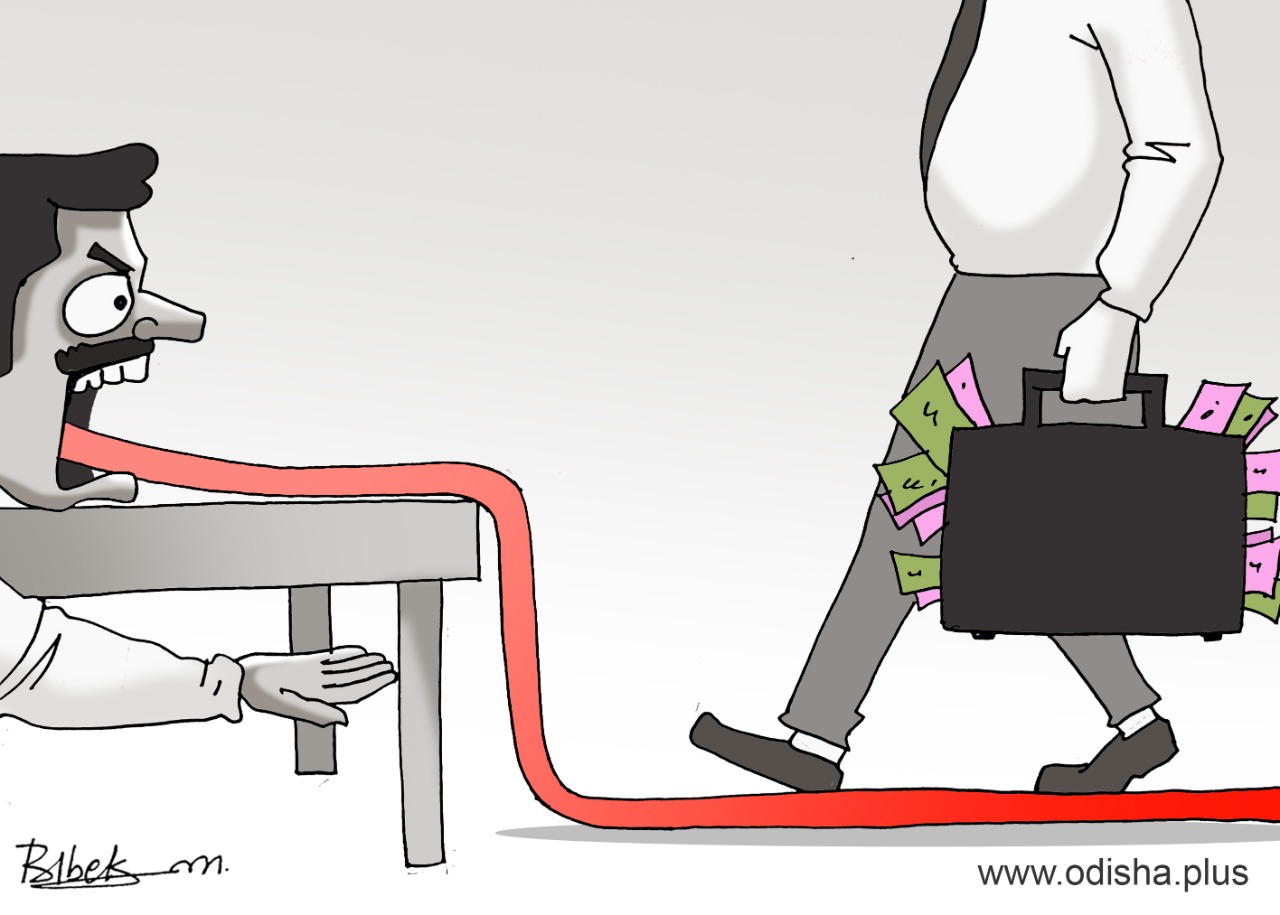Bhaskar Parichha
‘Corruption is worse than prostitution. The latter might endanger the morals of an individual, the former invariably endangers the morals of the entire country.’ – Karl Kraus (Austrian Journalist, Critic, Playwright and Poet, 1874-1936)

There couldn’t be a better or more apt definition of India’s corruption story than the one by Karl Kraus. Today, corruption has a vice-like grip on the Indian workplace-whether it is the sarkari office or corporate corridors. Corruption does not recognize geographical boundaries, but when geography becomes synonymous with sleaze, the problem accentuates.
Unethical behavior or corruption is a ‘universal phenomenon’ as Indira Gandhi once said. Then, corruption in India has moved beyond quantification ever since she justified dishonesty in governance. With hideous money involved in almost all government activity and scams occurring day in day out, there is little hope in India’s corruption indicator ever turning green.
Nevertheless, recent scandals in India involving unintelligible sums of money should cause some soul-searching. What has gained currency in today’s global setting is that corruption emanates from ‘crooked’ countries and it destroys the integrity of ‘honest’ nations. Whether or not ‘crookedness’ is India’s new gift to an ethically correct world is open to inquiry, but there is no denying the fact that India’s corruption narrative has assumed legendary proportions.

Undeniably, India’s tryst with corruption continues to make headlines ever since the first financial scandal rocked the country- the Mundhra scandal. And, there seems no stopping the corruption rath treading along with thunderous clatter. Who knew who would be the next Kalmadi? Or which Raja is waiting to be handcuffed?
What makes one corruptible? It is just like asking what makes one hungry? Corruption in India has different dimensions and the cause-effect relationship is too well-known to warrant an illustration. Arguments like life-style changes impel people to run after iniquitous money might appear silly. But there is no invalidating the point that liberalization and globalization have unleashed tectonic shifts in the Indian way of life.This is not to suggest that the clock should move back. 
What’s important is that corruption and its ill effects on the economy, governance and society should be widely debated. There is rarely much discussion about ethics in college/ university debates as it happened once. Even among the citizenry the topic is passé. It is nigh on taken for granted that corruption is here to stay and nobody can do a thing about it.
If corruption has become a fact of life and the general perception that things in India don’t move without greasing the appropriate palms getting stronger, what has added to the slur is that even the probe and prosecution lack ethics.
Every job has honesty entwined into it. If the ethical argument has lost its shine, blame it on the attitudinal indifference, particularly when it comes to corruption. Even though we have built up an elaborate system of checks and balances, the corrupt get away with the proverbial long rope of law.

Corrupt practices have a quid pro quo and there always exists a kind of tacit understanding between the bribe-giver and the bribe-taker. Exposé requires conviction and boldness.
The ultimate test is one of catching the thief or letting him go. RTI has some answers to India’s owes of corruption. But it, too, has its limits. Post-2005, RTI has witnessed a very limited applicability and unless it becomes a wider tool in the hands of common people, corrupt practices in government will continue to make good news copy.
(The author Bhaskar Parichha is a Bhubaneswar based senior journalist and columnist. Views are personal)
Tags: #IndiaCorruption #KarlKraus #AstrianJournalist #IndiaGovernment #WorkplaceCorruption #CorruptionNews #SecurityRisk #Corruption #CorruptionWatch #AntiCorruptionAuthority #Scam #Payoff #CorruptionFreeIndia #CorruPTIon























Pertinent issue, deep malaise and timely thought. I guess this article never intended to provide off the cuff solutions but certainly raise awareness even more pronounced. Bhaskar Parichha has long experience in and deep understanding of systems both public and private. He knows the nodes of dystopia. His presentation belies the “dryness” of the topic. Such writings should be widely circulated.